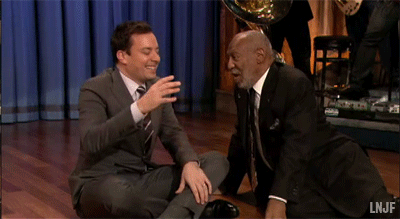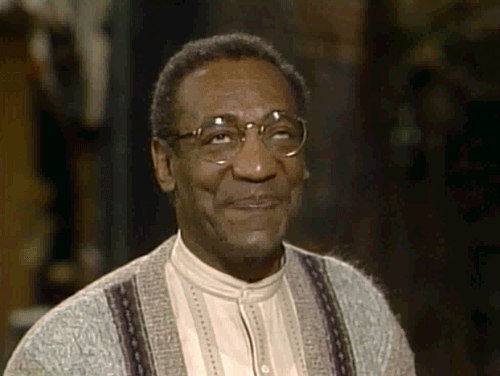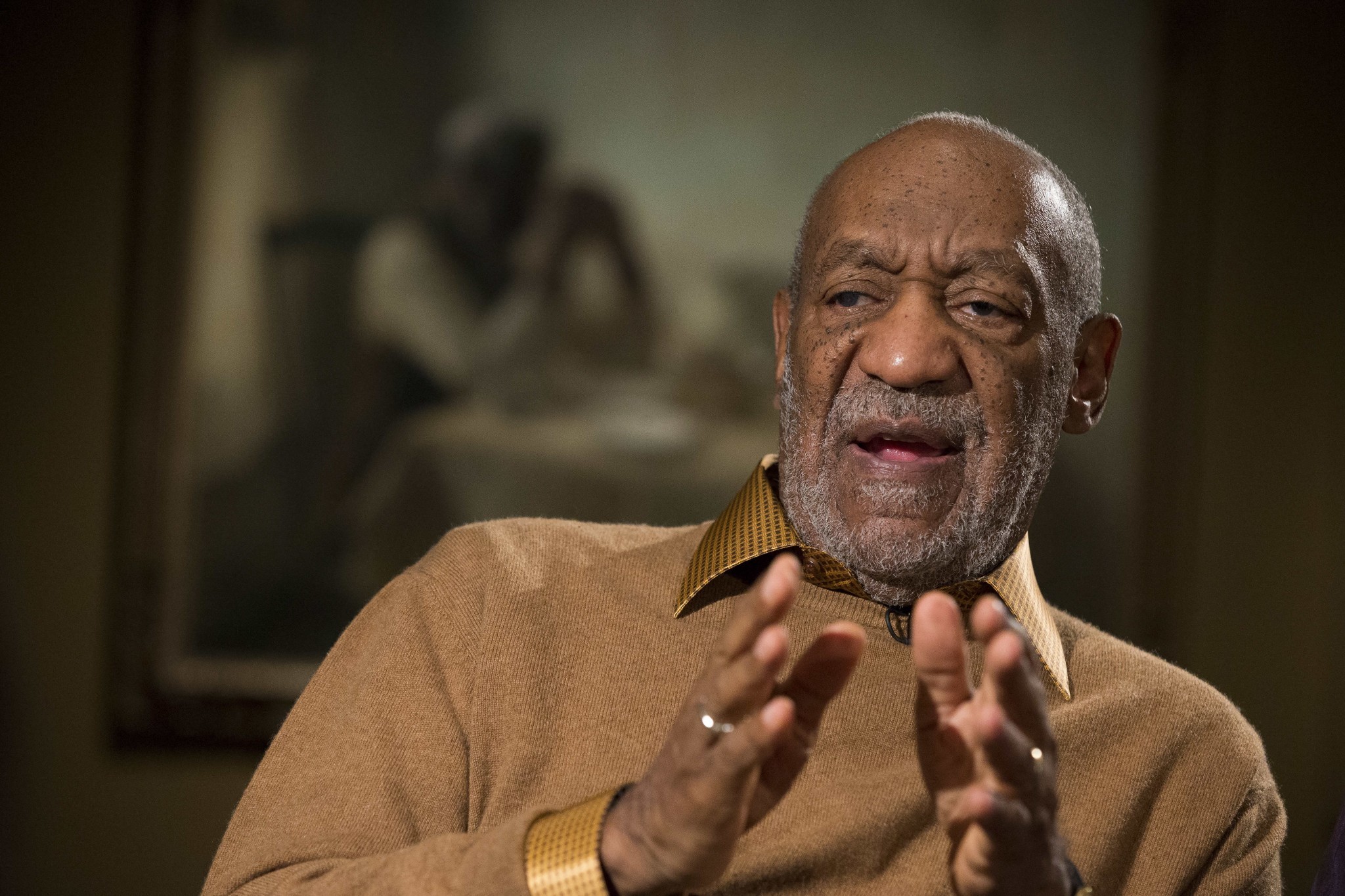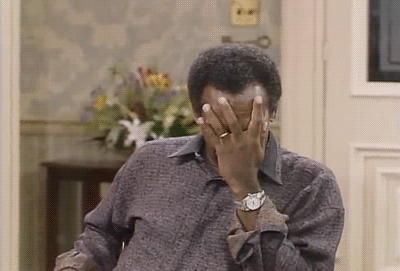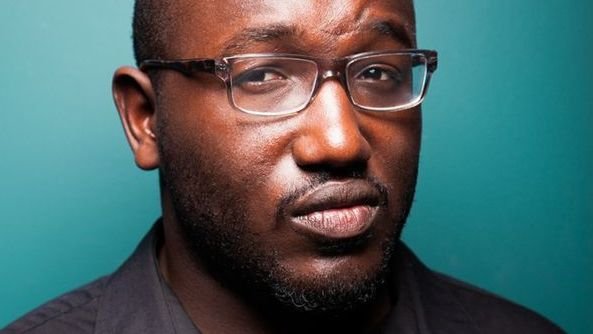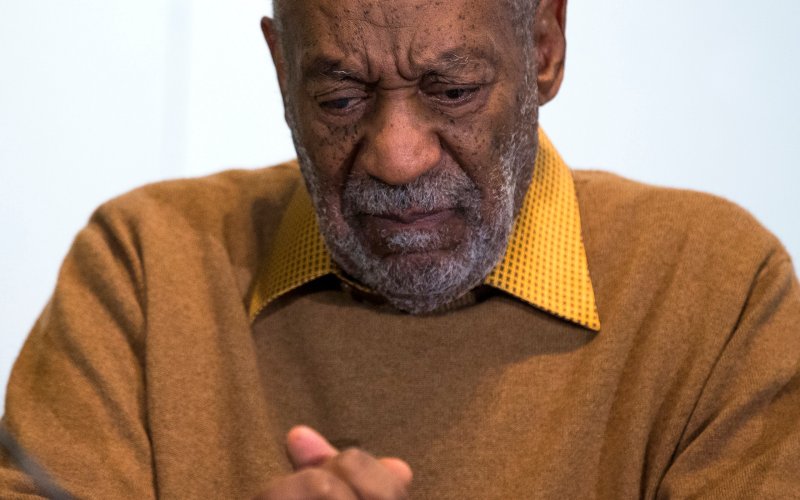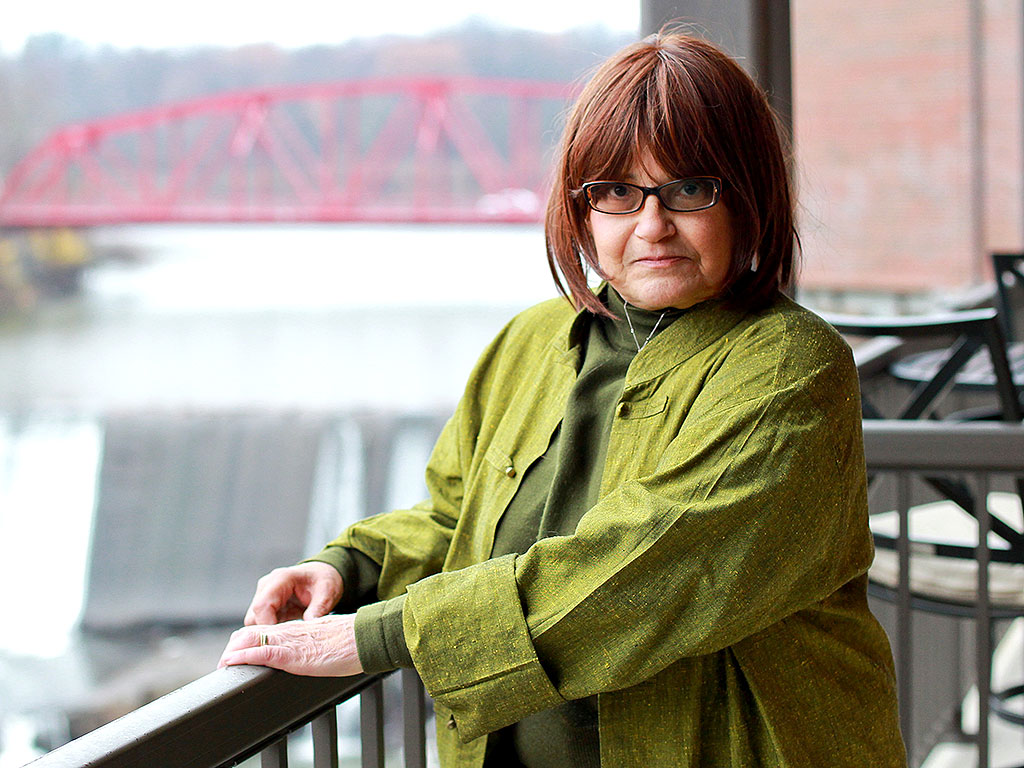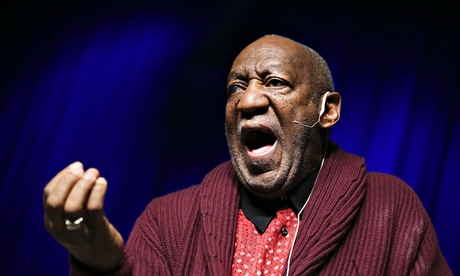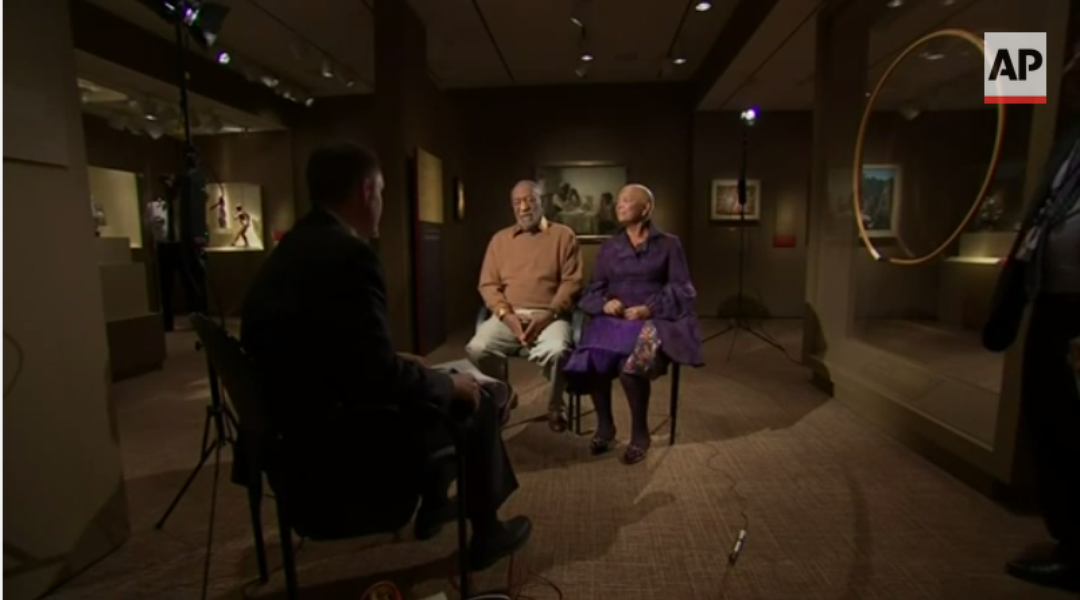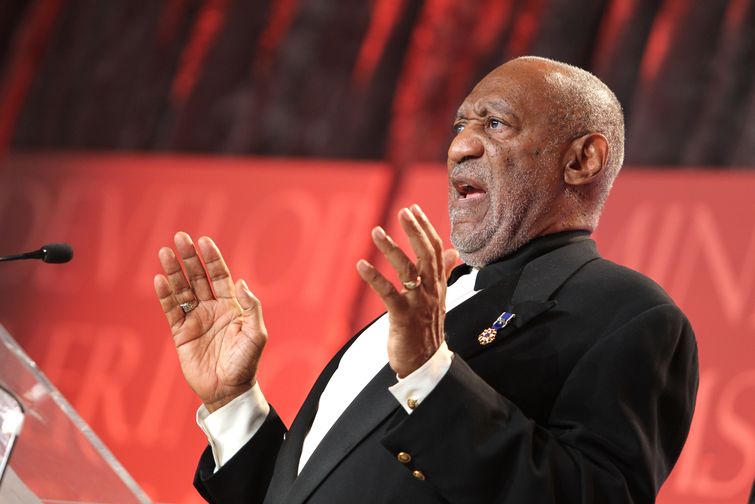Is Bill Cosby A Rapist?
The comedy legend has been accused by several women of sexually molesting them. But is he really what everyone is accusing him of - a serial rapist?
Bill Cosby, among several things, is also a veteran stand-up performer, whose comic timing, even at this age, is impeccable. While he was born in 1937, I only came to know of his existence in September this year when I accidentally stumbled upon this video of him cracking up Jimmy Fallon on The Tonight Show.
Impressed and in absolute awe of him, I then spent almost my entire night watching other videos of Cosby being incredibly funny. Even read about him. And learnt how he is fondly called America's favourite dad. Satisfied upon my accidental joy, I went to sleep.
Fast forward to November, while having displaced my joyous memory of Cosby in some deep corner of my absent-minded head, I suddenly find myself, among many like me, witnessing this comedy legend's EPIC fall from being a renowned public figure to probably the most hated man on the Internet right now
What happened?
Cosby, America's favourite dad, has been accused of rape. Yes, you read that right. And not just one or two or three. But several! In fact, he has been accused of raping over a dozen women!
The accusations, although decade-old, do a pretty good job of labelling Cosby as a serial rapist. In case you're wondering why are they resurfacing now? Well, the renewed attention is courtesy of Hannibal Buress, a comedian, who called Cosby a rapist during his performance in Cosby's hometown of Philadelphia in October.
Hannibal Buress is best known for his standup, as well as roles in The Eric Andre Show, Broad City, and Neighbors.
Image via npr.org"It’s even worse because Bill Cosby has the f&#kin’ smuggest old man black persona that I hate. He gets on TV, ‘Pull your pants up black people, I was on TV in the ‘80s! I can talk down to you because I had a successful sitcom!’ Yeah, but you rape women, Bill Cosby, so turn the crazy down a couple of notches."
"I guess I want to just a least make it weird for you to watch Cosby Show reruns. I’ve done this bit on stage and people think I’m making it up. When you leave here, Google ‘Bill Cosby rape’. That s&#t has more results than Hannibal Buress."
Following Hannibal's skit, things have only gotten worse for Cosby. New and renewed allegations by a variety of women (15 at the time of writing this) against him started circulating on social media with almost all of them claiming he drugged and sexually assaulted a number of women in incidents dating back to 1969.
While Cosby, on his part, has strongly denied previous accusations against him, last weekend, 15 November, he faced fresh allegations from a woman named Joan Tarshis who accused him of raping her twice in 1969. She was 19 years old back then.
Joan Tarshis, then an aspiring comedy writer, claims she recalled Mr Cosby mixing her a drink at his studio bungalow. “The next thing I remember was coming to on his couch while being undressed,” she wrote on the website Hollywood Elsewhere.
“Through the haze I thought I was being clever when I told him I had an infection, and he would catch it, and his wife would know he had sex with someone. But he just found another orifice to use. I was sickened by what was happening to me and shocked that this man I had idolized was now raping me.”
At the time Ms Tarshis told no one what had happened, and claims she later felt obliged to accept Mr Cosby’s invitation to his stand-up show, where she said he again mixed her a drink, and she grew woozy.
“The next thing I remember was waking up in his bed back at the [hotel], naked. I remember thinking ‘You old s***, I guess you got me this time, but it’s the last time you’ll ever see me.’”
 gawker.com
gawker.com
Joan's account, one of the several from the 15 women to come forward against Cosby, came on the heels of a piece published in The Washington Post on 13 November by Barbara Bowman
In her article, Barbara stats: "Cosby won my trust as a 17-year-old aspiring actress in 1985, brainwashed me into viewing him as a father figure, and then assaulted me multiple times."
"In one case, I blacked out after having dinner and one glass of wine at his New York City brownstone, where he had offered to mentor me and discuss the entertainment industry. When I came to, I was in my panties and a man’s t-shirt, and Cosby was looming over me. I’m certain now that he drugged and raped me."
"But as a teenager, I tried to convince myself I had imagined it. I even tried to rationalize it: Bill Cosby was going to make me a star and this was part of the deal. The final incident was in Atlantic City, where we had traveled for an industry event."
"I was staying in a separate bedroom of Cosby’s hotel suite, but he pinned me down in his own bed while I screamed for help. I’ll never forget the clinking of his belt buckle as he struggled to pull his pants off. I furiously tried to wrestle from his grasp until he eventually gave up, angrily called me “a baby” and sent me home to Denver."
And back in 2005, when Andrea Constand, another alleged victim, filed a lawsuit claiming Cosby had drugged and molested her at his home in Philadelphia that year, 13 others reportedly offered to testify in the case, including Barbara. The suit, however, was settled out of court by Cosby for an undisclosed amount of money.
Meanwhile, on 6 November 2014, the Associated Press asked Cosby to comment on the rape allegations against him during an on-camera interview. He refused to respond, but then asked the reporter to "scuttle" the segment about the rape allegations, apparently believing that the interview had ended.
While Cosby's refusal to answer the questions regarding the allegations is not surprising, his demands that AP keep the footage secret — and his apparent confidence that those demands would be met — offer a chilling insight into why it took so long for the allegations against him to become a major news story
As the AP interviewer squirms uncomfortably in his chair, Cosby tells him that he has agreed to do the interview because he expected the AP to have "integrity." (Cosby appears to be under the mistaken impression that the word "integrity" is defined as "willingness to avoid discussion of the numerous women who have accused you of drugging and raping them if that would make you uncomfortable Mr. Cosby.")
"I would appreciate it if it was scuttled," Cosby says. "I think that if you want to consider yourself as serious, then it will not appear anywhere." An off-camera Cosby associate can then be heard insisting that another AP reporter, Lynn Elber, had agreed not to question Cosby about the rape allegations, implying that there was some sort of AP policy against covering the issue.
The AP obviously refused to accede to Cosby's demands not to show the interview. But how many times, over the years, have reporters agreed not to question Cosby about the rape allegations? How many times has he succeeded in having such interview segments quashed?
Perhaps the answer to those questions could help explain why the rape allegations against Cosby had so little effect on his career until now.
 vox.com
vox.com
Regarding why all these women are coming forward with their allegations now and not when it actually happened. As this Gawker commenter put it, when people have been traumatised, the psychological impact is devastating and unpredictable.
One of the most common reactions is denial—denial of a depth and intensity so overwhelming that it's unlikely that people like you or me can realistically grasp it. The frantic need to deny that it happened frequently leads victims to place themselves in harm's way in a desperate effort to regain control of themselves and their environment.
You see it in shell-shocked soldiers returning to the front lines, in earthquake survivors refusing to leave their homes, in abused children seeking care and attention from their abusers and, of course, rape victims returning to their rapists. It's very, very common. It is not a sign of weakness or stupidity. It's a symptom of a traumatised brain screaming for help.
 gawker.com
gawker.com
Going by the barrage of articles coming up, it seems that this story is here to stay. But why did it take so long to become news?
Believing or even paying attention to the allegations against Cosby would have required us all to do work and make sacrifices, and we didn't want to do that. Ignoring his accusers meant that we got to keep our happy childhood memories of the Cosby Show. Ignoring his accusers meant that we got to keep laughing at Cosby's classic standup routines, which still hold up, even after all those years. Ignoring his accusers meant that we got to keep Cosby as a powerful cultural figure.
Believing the accusers, or just entertaining the thought that they could be telling the truth, meant that we would have to come to terms with the knowledge that someone we accepted into our lives, someone whose art we loved, had the capacity to commit this evil act, over and over. We didn't want to do that. So, for a long time, we didn't — until comedian Hannibal Buress made the decision to come at the king, and did not miss.
 vox.com
vox.com
So what do I think of this whole issue? Honestly, I'm in two minds.
But, as The Daily Beast notes, if the allegations are false, Cosby has been grievously wronged with his reputation forever tainted.
But if the allegations are true, the women assaulted by Cosby have suffered something even worse. Raped and dismissed, they will have joined the endless list of the powerless trampled by the powerful.
